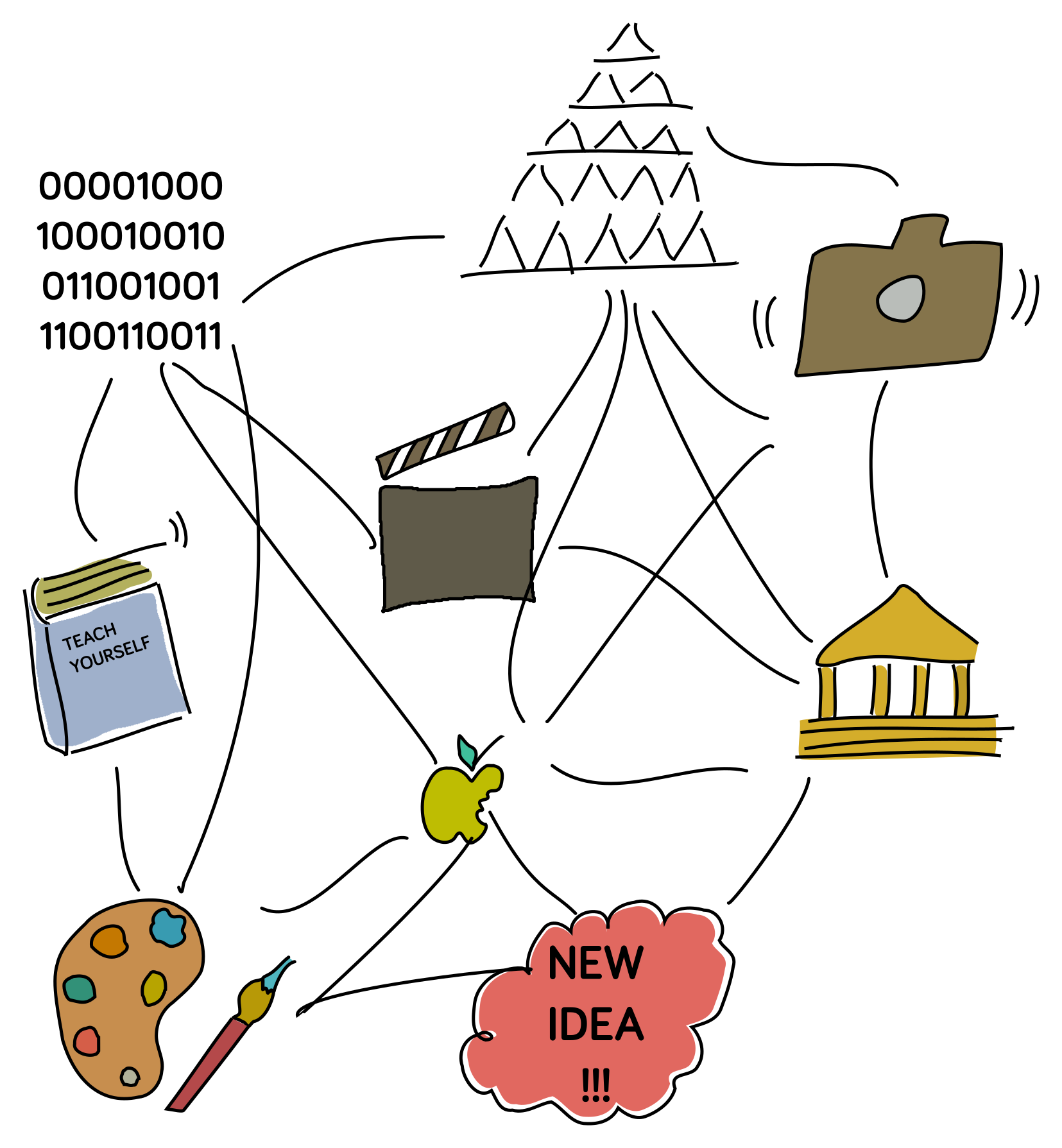
Remember the first time someone asked you what you wanted to be when you grew up? It’s a harmless question to most 5-year-olds. But as we grow older, the same question keeps being asked in many different ways. At some point, it stops being a fun conversation starter and turns into the problem that keeps us up at night.
How do we know our answer is right? What if we’d like to give 20 different answers? Is there a way to turn multiple interests into a viable career, or do we always have to resign and pick just one interest?
Generally, people with multiple interests are still told they have to make a single choice. The resulting inadequacy or confusion seem to lead them through repetitive patterns where they become interested in specific topics, channel a lot of resources to learn about those topics, and then end up bored and demotivated once they start getting a grasp. And when that happens, trying to persist is useless. Boredom and demotivation quickly become too overwhelming. Most likely, the cycle starts again with a focus on yet another new topic. While most creative professionals are adept at keeping multiple interests, we’re not all always adept at juggling. Maybe this is why our culture still romanticizes the idea of a narrow-focus or a true calling. Anything else can still be taken as a fear of commitment, a scattered personality or self-sabotaging.
I’m not wired to concentrate on a single true calling, and I’ve met more than a fair share of professionals who are the same way. If this can make us feel lonely, frustrated or like we lack purpose at different points in time, there’s bound to be another more positive side to it too. Fortunately for us, organizations everywhere are just starting to take notice. In fact, the kind of skills we can cultivate through our multiple interest are turning into the a new set of essential traits for professionals in different areas. To me, there are three very obvious ones:
-
We are adaptable. We can quickly switch roles to think and act according to each specific situation we encounter at work. Now that our economic and social contexts change faster than ever, adaptability is the best way to meet our markets’ needs. Fast Company magazine calls adaptability a key to thriving today.
-
We’re fast learners, and we’re used to being beginners. We’ve often been beginners, so we’re not shy to ask questions or try new things. Multiple interests give us multiple transferrable skills, which is to say that even as beginners, we’re hardly ever starting from scratch. Our multiple interests are not multiple ways to waste time. Whatever we get out of them can always be applied in ways we can’t anticipate.
-
We’re on to new ideas. New ideas happen at intersections, and we’re masters at creating intersections by combining two or more of our interests.
Do you have multiple interests? What’s the best way to juggle them? How do you use them to your advantage? Feel free to join the conversation on the comment box. I’m sure the other readers will be happy to hear from you!

